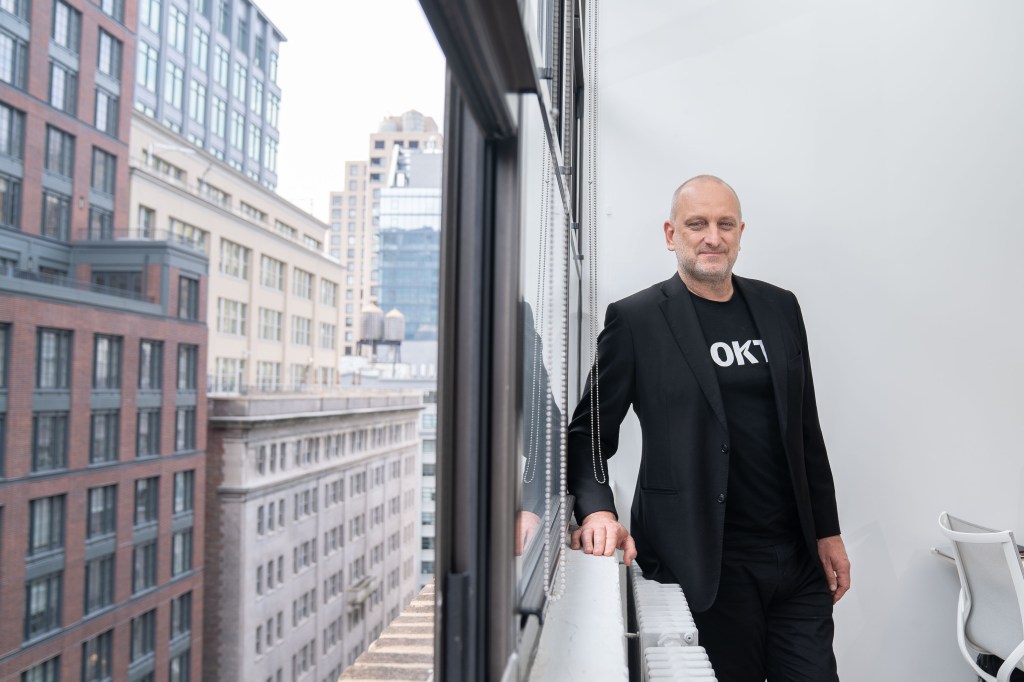While leading Jetstar, Bruce Buchanan had an idea. That idea turned into a unicorn.
Key Takeaways
- Ex-Jetstar boss Bruce Buchanan co-founded Rokt in 2013
- Rokt closed a record-breaking $458 million Series E round in December last year, at a valuation of $2.75 billion

If you’d thought of a business idea, but your peers told you it was crazy, would you follow through with it? Rokt founder Bruce Buchanan did, thanks to an “unnatural belief” in himself. Of course, that unnatural belief turned out to be quite natural after all, considering Rokt’s huge success.
Rokt’s software helps e-commerce companies personalise the checkout experience to get more value out of customer transactions. In practice, that means rather than being shown 10 different add-on options you don’t want, you’ll be shown two to three options you do.
And the numbers speak for themselves: in December last year, Rokt closed a record-breaking $458 million Series E round at a $2.75 billion valution, led by US investment juggernauts Tiger Global. The plan was to lay roots with large US investors in preparation for a US initial public offer at the end of 2023.
Buchanan has the Midas touch with these things. He built his first business in high school, making enough cash to employ his friends and put himself through university. He then bought his second business in the first year of his undergraduate degree for the bargain price of $100,000 (which he says he repaid over three years). After working his magic, that venture ended up pulling in more than $1 million in revenue each year.
But it was his stint at BCG as a consultant, building out Qantas’ loyalty strategy alongside then-CEO Geoff Dixon that ignited Buchanan’s passion for building a great customer experience. And when he was asked by Dixon to lead Jetstar, it was a no-brainer.
“I thought it would be a fun six months. It turned into 10 years,” he told Forbes Australia.
Buchanan had lofty goals for Jetstar. He wanted to double everything: the customers, the flight routes and, of course, the revenue. And he realised that by targeting customers with the relevant products at the transaction stage, he could achieve that goal. Then he had a brain wave.
“Imagine if we could solve that customer pain point of relevancy in the e-commerce transaction moment globally,” he said. And so Buchanan acquired digital advertising company Rocklive, which he rebranded to Rokt in 2013 – and the rest is history.
Of course, it was not an overnight success. And Buchanan admits he was naïve to how difficult it would be to build trust with companies.
“I was blinded by the size of the opportunity,” he said. “But we would demonstrate how much impact we could have very quickly.”
In 2016, Rokt signed one of its first clients, Ticketmaster. Through word of mouth, business began to spread organically.
“There were seven to eight years of hard work and not a lot of revenue. But by the time we got to 2019, just before COVID, we started to get more traction.”
Investors TDM Growth Partners, which helped Rokt reach out to key US investors in its last round, told Forbes Australia that Buchanan was driving incredible value for his customers.
“We had been lucky enough to have built a relationship with Bruce Buchanan and seen firsthand what an incredible operator he was, how aligned we were in many aspects of the scaling challenges that he faced, and really felt with great execution that Rokt could become a huge business. That thesis is certainly playing out.”